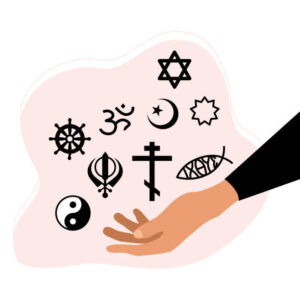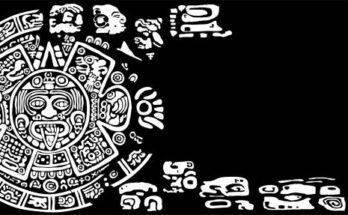In the ever-evolving landscape of contemporary thought, postmodernism has emerged as a lens through which individuals scrutinize and reinterpret various aspects of human existence. One such facet that has garnered attention is religion. Traditionally, religion has been viewed through a lens of absolutism, with distinct boundaries and fixed beliefs. However, the postmodern perspective challenges these traditional notions, advocating for a more fluid and inclusive understanding of religious diversity. This article explores the postmodern take on religions, delving into the key principles and implications of this evolving worldview.
Breaking Down Boundaries
 (Photo from iStock)
(Photo from iStock)
Postmodernism, as a philosophical and cultural movement, rejects the idea of fixed categories and absolute truths. Instead, it emphasizes the fluid and subjective nature of reality, encouraging individuals to question established norms and challenge preconceived notions. When applied to the realm of religion, postmodernism prompts us to reconsider the rigid boundaries that have traditionally separated belief systems.
The emphasis shifts from asserting one’s own religious truth to appreciating the multiplicity of perspectives that contribute to the rich tapestry of human spirituality. This approach opens the door to a more inclusive understanding of religious diversity, fostering a sense of unity amidst the apparent differences.
Deconstructing Dogmas
Central to the postmodern take on religions is the deconstruction of dogmas – those fixed and often unchallengeable doctrines that have defined religious traditions for centuries. Postmodern thinkers argue that these dogmas, far from being absolute truths, are social constructs shaped by historical, cultural, and political contexts.
Deconstructing religious dogmas involves critically examining the narratives and doctrines that have been handed down through generations. It encourages believers to question the authority behind these teachings and explore the underlying power structures that sustain them. By doing so, individuals can liberate themselves from the constraints of rigid belief systems and engage with spirituality in a more personal and authentic manner.
Religious Pluralism and Tolerance
 (Photo from iStock)
(Photo from iStock)
Postmodernism advocates for religious pluralism, a perspective that acknowledges and embraces the coexistence of multiple religious truths. Instead of viewing different religions as competing for a singular truth, postmodern thought encourages the recognition that diverse belief systems can peacefully coexist, each contributing to the collective understanding of the divine.
This acceptance of religious diversity extends beyond mere tolerance. In a postmodern framework, tolerance is not merely a passive acknowledgment of differences but an active engagement with diverse perspectives. It involves genuine curiosity and a willingness to learn from others, recognizing that each individual’s spiritual journey is unique and valid.
The postmodern approach challenges the notion that one must convert others to their own belief system to ensure salvation or enlightenment. Instead, it encourages dialogue and mutual respect, fostering an environment where individuals can share their spiritual experiences without the pressure to conform to a single, predetermined truth.
Reimagining Rituals and Symbols
 (Photo from iStock)
(Photo from iStock)
Postmodernism prompts a revaluation of religious rituals and symbols, encouraging individuals to explore alternative forms of expression that resonate with their personal spirituality. Rather than adhering strictly to traditional practices, adherents are free to reinterpret rituals and symbols in ways that hold personal meaning.
This reinterpretation extends to sacred texts as well. Rather than approaching religious texts as literal and unalterable, postmodernism encourages readers to engage with them critically, recognizing the cultural and historical contexts that shaped these narratives. This approach allows for a more nuanced and open-minded interpretation of sacred scriptures, fostering a deeper understanding of the underlying spiritual messages.
Beyond the Binary: Gender and Sexuality in Religion
A significant aspect of the postmodern take on religions involves challenging binary concepts, especially regarding gender and sexuality. Traditional religious frameworks have often upheld strict binary divisions between male and female, as well as heterosexual and homosexual orientations. Postmodernism, however, rejects these rigid categorizations, recognizing the fluidity and diversity inherent in human experiences.
In a postmodern perspective, religious communities are urged to reconsider their stance on gender and sexuality. Embracing a more inclusive and accepting approach. This involves acknowledging the existence of LGBTQ+ individuals within religious communities. And creating spaces where they can express their spirituality authentically. Postmodern thought challenges the notion that adherence to traditional gender roles. And sexual norms is a prerequisite for spiritual fulfilment. Advocating for a more inclusive and affirming religious experience for all.
The Role of Power and Privilege in Religion
 (Photo from iStock)
(Photo from iStock)
Postmodernism shines a critical light on the power dynamics inherent in religious institutions. Traditional religious structures often wield considerable authority over their followers. Influencing not just spiritual beliefs but also social and political ideologies. Postmodern thought encourages individuals to question the sources. Of power within religious institutions and to be aware of how these power dynamics can shape religious narratives.
Moreover, postmodernism prompts a re-examination of privilege within religious contexts. It calls for an acknowledgment of the ways in which certain groups. May hold privileged positions within religious hierarchies, often at the expense of marginalized individuals or communities. This awareness fosters a commitment to social justice within religious communities, urging them to confront and address systemic inequalities.
Conclusion
The postmodern take on religions challenges the traditional, fixed understanding of spirituality, inviting individuals to explore a more inclusive. And dynamic approach to faith. By breaking down boundaries, deconstructing dogmas, embracing religious pluralism, reimagining rituals and symbols. Challenging binary concepts, and addressing power dynamics, postmodernism encourages a more open and authentic engagement with spirituality.
In a world marked by increasing diversity and interconnectedness, the postmodern perspective on religions provides a framework. For fostering understanding, tolerance, and mutual respect among people of different faiths. It invites individuals to embark on a personal and communal journey of spiritual exploration. Free from the constraints of rigid dogmas and divisive ideologies.
As we navigate the complexities of the modern world, the postmodern take on religions encourages us. Eventually, to embrace the richness of diverse spiritual experiences, recognizing that each individual’s path to the divine is unique and valid.




